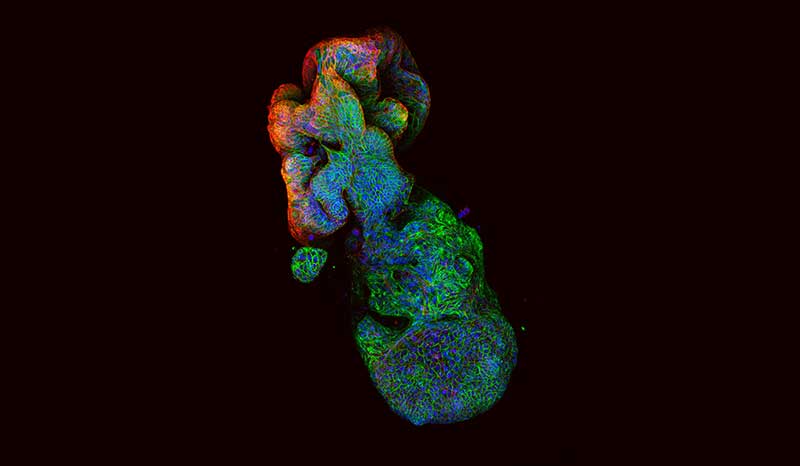Luk IY, Mooi JK, Mouradov D, Tan T, Scott CM, Chionh F, Jenkins LJ, Reehorst CM, Nightingale R, Savas P, Tse JW, Crake RL, Batlle E, Arango D, Dopeso H, Gibbs P, Tebbutt NC, Luwor RB, Scott AM, Basheer F, Dhillon AS, Clemons NJ, Williams DS, Firestein R, Sieber OM, Mariadason JM. Model systems and unique biological features of high and low-grade colorectal cancer (CRC) revealed by xenografting 84 human CRC cell lines. Communications Biology. 2025;8(1):10.1038/s42003-025-08251-0
Wang Z, Burigotto M, Ghetti S, Vaillant F, Tan T, Capaldo BD, Palmieri M, Hirokawa Y, Tai L, Simpson DS, Chang C, Huang AS, Lieschke E, Diepstraten ST, Kaloni D, Riffkin C, Huang DCS, Suen CSNLW, Garnham AL, Gibbs P, Visvader JE, Sieber OM, Herold MJ, Fava LL, Kelly GL, Strasser A. Loss-of-Function but Not Gain-of-Function Properties of Mutant TP53 Are Critical for the Proliferation, Survival, and Metastasis of a Broad Range of Cancer Cells. Cancer Discovery. 2024;14(2):10.1158/2159-8290.cd-23-0402
Tan T, Mouradov D, Lee M, Gard G, Hirokawa Y, Li S, Lin C, Li F, Luo H, Wu K, Palmieri M, Leong E, Clarke J, Sakthianandeswaren A, Brasier H, Tie J, Tebbutt NC, Jalali A, Wong R, Burgess AW, Gibbs P, Sieber OM. Unified framework for patient-derived, tumor-organoid-based predictive testing of standard-of-care therapies in metastatic colorectal cancer. Cell Reports Medicine. 2023;4(12):10.1016/j.xcrm.2023.101335
Mouradov D, Greenfield P, Li S, In E-J, Storey C, Sakthianandeswaren A, Georgeson P, Buchanan DD, Ward RL, Hawkins NJ, Skinner I, Jones IT, Gibbs P, Ma C, Liew YJ, Fung KYC, Sieber OM. Oncomicrobial Community Profiling Identifies Clinicomolecular and Prognostic Subtypes of Colorectal Cancer. Gastroenterology. 2023;165(1):10.1053/j.gastro.2023.03.205
Hirokawa Y, Clarke J, Palmieri M, Tan T, Mouradov D, Li S, Lin C, Li F, Luo H, Wu K, Faux M, Tan CW, Lee M, Gard G, Gibbs P, Burgess AW, Sieber OM. Low-viscosity matrix suspension culture enables scalable analysis of patient-derived organoids and tumoroids from the large intestine. Communications Biology. 2021;4(1):10.1038/s42003-021-02607-y
Williams DS, Mouradov D, Jorissen RN, Newman MR, Amini E, Nickless DK, Teague JA, Fang CG, Palmieri M, Parsons MJ, Sakthianandeswaren A, Li S, Ward RL, Hawkins NJ, Faragher I, Jones IT, Gibbs P, Sieber OM. Lymphocytic response to tumour and deficient DNA mismatch repair identify subtypes of stage II/III colorectal cancer associated with patient outcomes. Gut. 2019;68(3):10.1136/gutjnl-2017-315664
Domingo E, Camps C, Kaisaki PJ, Parsons MJ, Mouradov D, Pentony MM, Makino S, Palmieri M, Ward RL, Hawkins NJ, Gibbs P, Askautrud H, Oukrif D, Wang H, Wood J, Tomlinson E, Bark Y, Kaur K, Johnstone EC, Palles C, Church DN, Novelli M, Danielsen HE, Sherlock J, Kerr D, Kerr R, Sieber O, Taylor JC, Tomlinson I. Mutation burden and other molecular markers of prognosis in colorectal cancer treated with curative intent: results from the QUASAR 2 clinical trial and an Australian community-based series. The Lancet Gastroenterology & Hepatology. 2018;3(9):10.1016/s2468-1253(18)30117-1
Sakthianandeswaren A, Parsons MJ, Mouradov D, MacKinnon RN, Catimel B, Liu S, Palmieri M, Love C, Jorissen RN, Li S, Whitehead L, Putoczki TL, Preaudet A, Tsui C, Nowell CJ, Ward RL, Hawkins NJ, Desai J, Gibbs P, Ernst M, Street I, Buchert M, Sieber OM. MACROD2 Haploinsufficiency Impairs Catalytic Activity of PARP1 and Promotes Chromosome Instability and Growth of Intestinal Tumors. Cancer Discovery. 2018;8(8):10.1158/2159-8290.cd-17-0909
Wang J, Mouradov D, Wang X, Jorissen RN, Chambers MC, Zimmerman LJ, Vasaikar S, Love CG, Li S, Lowes K, Leuchowius K-J, Jousset H, Weinstock J, Yau C, Mariadason J, Shi Z, Ban Y, Chen X, Coffey RJC, Slebos RJC, Burgess AW, Liebler DC, Zhang B, Sieber OM. Colorectal Cancer Cell Line Proteomes Are Representative of Primary Tumors and Predict Drug Sensitivity. Gastroenterology. 2017;153(4):10.1053/j.gastro.2017.06.008
Sieber OM, Lipton L, Crabtree M, Heinimann K, Fidalgo P, Phillips RKS, Bisgaard M-L, Orntoft TF, Aaltonen LA, Hodgson SV, Thomas HJW, Tomlinson IPM. Multiple Colorectal Adenomas, Classic Adenomatous Polyposis, and Germ-Line Mutations in MYH. The New England Journal of Medicine. 2003;348(9):10.1056/nejmoa025283




